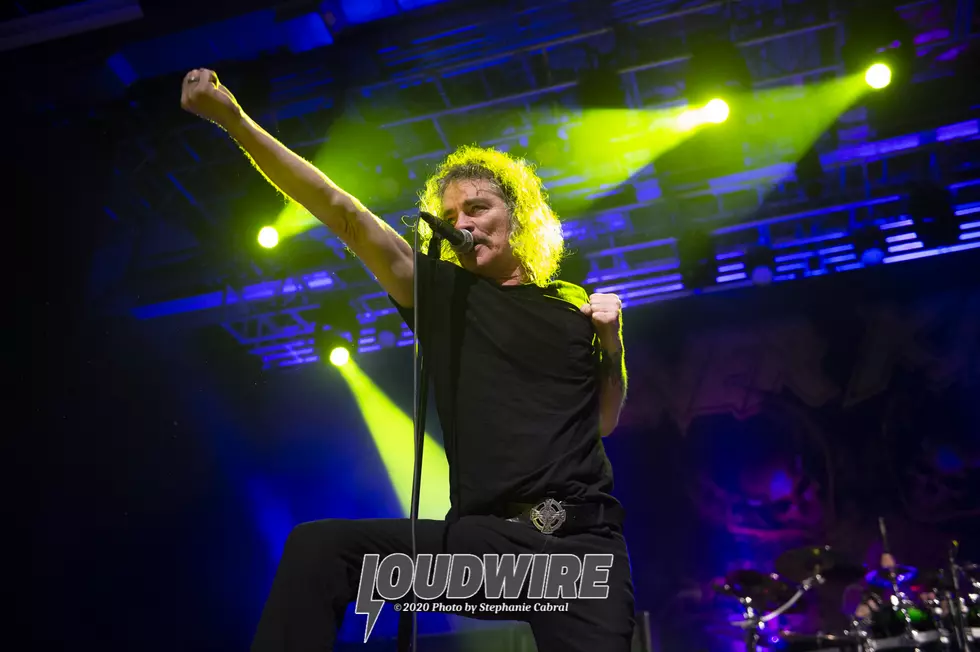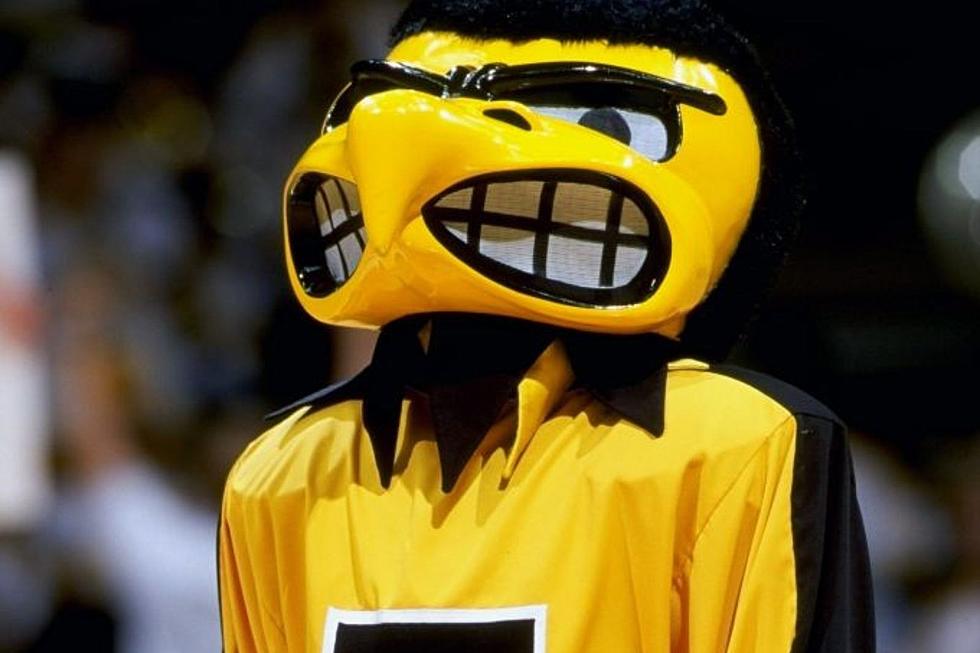
Bobby Blitz Explains Why Overkill Aren’t Just a ‘One Trick Pony’
Overkill's Bobby Blitz was the latest guest on Full Metal Jackie's weekend radio program, just in time for the release of the veteran thrashers' 20th studio album, Scorched, which the singer contends is another example of how the band is not a "one trick pony" they're often perceived to be.
Prior to the release of Scorched, Overkill had never gone more than three years without putting out a new album, but the four-year gap between this one and The Wings of War can be blamed on the pandemic. The band had actually demoed the material before the world shuttered, which left Blitz going through re-writes, feeling the darker lyrical subject matter didn't really fit the band very well.
And as much as the long-running thrash group has a uniquely recognizable sound and style, Blitz feels there's way to shake things up without deviating too far from fan expectations and it's something that has always been a priority.
Read the full chat below.
Scorched has been described as being based more on riffs than rhythm. How does the nature of the music prompt differences in the attack and intonation of your vocals?
We started messing around with different things in the past that were more rhythm based than on this record, but it doesn't really affect anything.
The only thing that really affects me is when they start detuning to a point that I just can't reach or I have to feign reaching it. This is riff-oriented with one riff connected to the next riff and to the next riff, not that there's not groove and rhythm. I'm having no problem because the majority of the records are in 440 or a standard tuning, which is something that's always been my go to over the years.
Overkill, "Scorched"
Some of the songs on this record predate the pandemic. What's difficult or easy about completing an album once a significant amount of time goes by?
That's a great question because we're not that type of the band and never have been. We run out of clock and it's usually never more than two years for us — that's why we have 20 records. We were going to call this He Who Dies With the Most Toys Wins, but the point is that we're demoing every 18 months. The entire demo was done prior to the pandemic, but it took me a while to get into that pandemic vibe like the rest of the world did.
I wrote it, I tore it down, I wrote it, I tore it down... and I think that the reasoning behind that was that it started becoming too dark for what we do. I never considered us a really dark band, but this was starting to lean toward depressive and I think it was a reflection of the times — everything is now different, it's not a two-year cycle, there's no touring, there's no going down to the bar. I was riding my motorcycle — that was the only outlet I had.
I do think having that extra time lent itself to really good results with this record and that's because of those riffs and the fact that maturity rang its bell and put us in a situation where we could string this together into something that was special and not something that was only pandemic based.
Overkill are a blue-collar band, meaning that there's a work ethic of constant productivity. Who or what ingrained that working class discipline in you?
I think that that's something that you probably identify with and know very well. I'm not saying that the west coast or the Midwest does not have a work ethic — they surely do — but if you come from the east coast, that thread runs entirely through the family. Before the band, Uncle Gerald, Uncle Francis and Uncle Joe and on and on and on and I'm sure [bassist] D.D. [Verni] has a lot of the same principles in his family. I think that that's why it works for D.D. and myself over all these years — we're running on the same principles, and that's not to demean any other part of the country because that's not what I'm getting at at all.
But if you grew up here, you know what it's like. Everybody's got to work. It's not like, "Take it easy." It's not. Especially that New Jersey blue collar work ethic — we've always been considered the people who picked up New York's garbage... yeah, yeah, okay.
But in any case, it's a family value that's been instilled from a very young age.
Overkill are touring Europe and I'm sure we're going to see you here in the United States. How is the band being on the road exactly like summer camp?
I think most of us in the band agree that the work goes in prior to the tour and a tour is really the fun part. If you can keep yourself healthy on the road, you can have a blast and this is from a guy who's been on the road for over 35 years — not consistently, but for 35 years I have toured and I still enjoy it.
I wouldn't say necessarily say summer camp, but for sure it's high school high jinks, which becomes an art. The shows come first, but those high jinks have become the motivating factor second and that's what always keeps it fresh. We look forward to the boys' club getting together.
Scorched is the 20th Overkill album, which is venturing toward The Rolling Stones longevity. Over the course of time, what changes most about the nature of being a band?
The music part of being in a band is something you have to constantly reinvent without, in our case, losing our identity. We've never really had that identity crisis, but we need to reinvent ourselves on how we record and how we stay fresh. People could say Overkill are a one trick pony and they've been that way since Feel the Fire or The Years of Decay or Horrorscope, but the truth is that someone who says something like that is really not listening to the songs. They might listen to the Overkill 101 thrash version of "The Surgeon" and compare it to "Hammerhead" on the first record.
But there is huge reinvention over these decades. Songs such as "Scorched" or the second single, "Wicked Place," which is a blues ride. This is not necessarily something that we've been allergic to. It's been in our DNA back to [The Years of Decay track] "Skullkrusher."
We're not a one trick pony and we need that reinvention to stay fresh. Even if it's reinventing what was reinvented, that's what makes the whole thing stay current and stay fun.
Bobby, it's always such a pleasure. Going back to the Birch Hill days and the WSOU days, I am grateful for our friendship and I'm so glad you guys are still killing it out there. I'm excited for you and for this new record. Good luck with all things to come.
It was one hell of a scene back then. It still is, to a very large degree. I've never seen popularity for this type of metal wane maybe except for a part in the '90s. But, again, it's been reinvented and there are some great new bands out there in Jersey, nationwide and worldwide right now who are taking that flag. That's a great thing.
Thanks to Bobby Blitz for the interview. Get your copy of Overkill's scorched on vinyl or CD and follow the band on Facebook, Twitter, Instagram and Spotify. Find out where you can hear Full Metal Jackie's weekend radio show here.
The Best Thrash Album of Each Year Since 1983
More From I-Rock 93.5

![Aldi Regrets Setting Out Phallic Shaped Easter Marshmallows [PHOTO]](http://townsquare.media/site/726/files/2023/03/attachment-Untitled-design-2023-03-10T103017.243.jpg?w=980&q=75)





